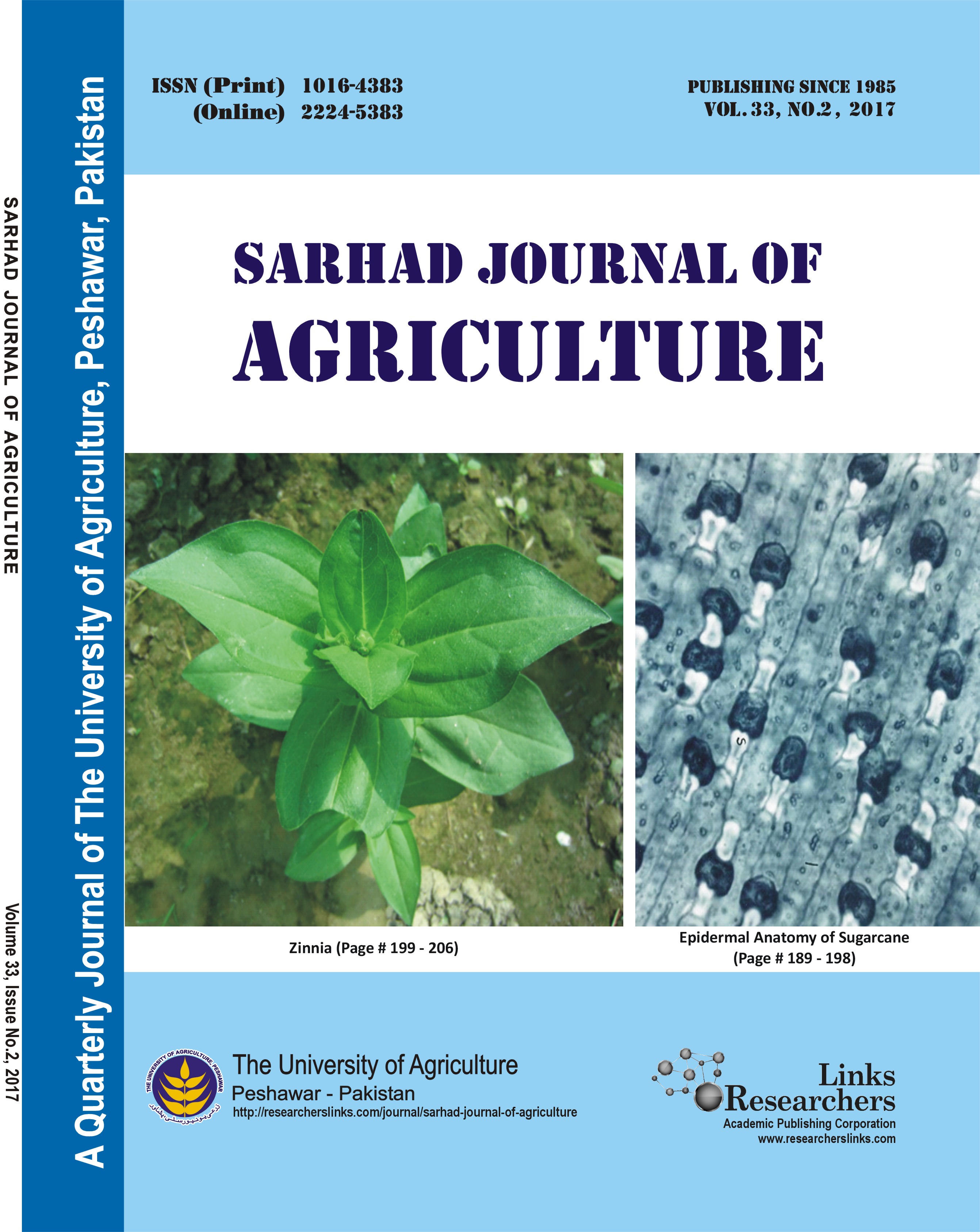Management of Late Blight and Sucking Insect Pests of Potato with Application of Salicylic Acid and β-aminobutyric Acid under Greenhouse Conditions
Management of Late Blight and Sucking Insect Pests of Potato with Application of Salicylic Acid and β-aminobutyric Acid under Greenhouse Conditions
Muhammad Usman Ghazanfar1, Waqas Raza1*, Waqas Wakil2,3, Imtiaz Hussain4 and Misbah Iqbal Qamar1
ABSTRACT
Pre-treatment of plants with chemical elicitors can induce systemic resistance against plant pathogens and insect herbivores. The plan of the study was to study induction of defense responses and protective effects against Phytophthora infestans (Mont.) de Bary and sucking insect pests of potato (Solanum tuberosum L.) with application of salicylic acid (SA) and β-aminobutyric acid (BABA). Concentration of SA and BABA (2, 4 and 5 mM) were applied to foliage. Application of both resistance inducers suppressed disease development by 54.1% and 67.4%, for SA and BABA, respectively, 5 days after pathogen inoculation. Numbers and size of lesions per plant was reduced by application of SA and BABA. Plants treated with BABA exhibited increased resistance against herbivory by aphids (Myzus persicae Sulzer) (Homoptera: Aphidiae), thrips (Thrips tabaci Lindeman) (Thysanoptera: Thripidae) and whitefly (Bemisia tabaci Gennadius) (Hemiptera: Aleyrodidae) compared to SA treated plants. Potato plants treated with SA and BABA had higher peroxidase and polyphenol oxidase activity than water treated plants. Enzymes produced as result of treatment with elicitors are responsible for protection against late blight and sucking insect pests. The inducers can be used for disease and insect pest’s management.
To share on other social networks, click on any share button. What are these?







